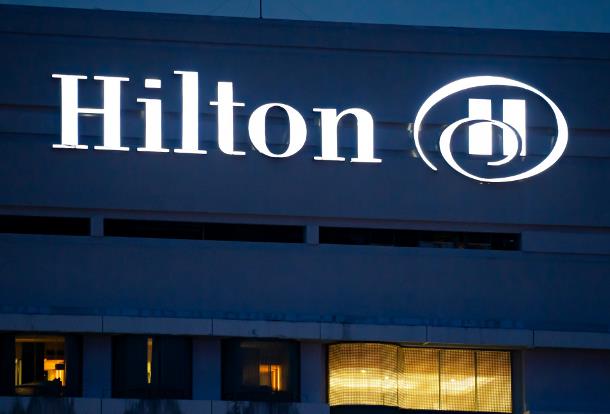ChinaTravelNews, Ritesh Gupta – How efficiently is the hotel industry in China managing rates and inventory across all channels?
A lot needs to be done looking at the state of affairs, especially at local properties, in this market. In fact, this is one area where China seems to be lagging behind its counterparts in the U. S., despite tremendous progress made in the arena of travel e-commerce. Even as hotel companies are mainly looking at how to optimize operations via a single image inventory, those associated with the industry in China refer to few critical issues that need to be sorted out.
“Chinese hotel engineering capability is still far away from the requirements of the Internet generation. Hotel-related technology companies need to provide systems that are easy to use and need less maintenance effort,” shared Ted Zhang, CEO, DerbySoft.
Underestimating efficacy of CRS
Today a CRS can seamlessly drive reservations across all channels of distribution and effectively optimize revenue generation. This is where properties or chains in a mature market like the U. S. are actually excelling. One key aspect of automation is that it allows hoteliers to spend much less time to manage ARI (availability, rate and inventory) on a daily basis. With current technology, a hotel can easily spend 30 minutes to publish/ distribute complex product in all or selected channels when it used to cost hotelier at least days to manage those channels. All reservations can be seamlessly downloaded into PMS without any human intervention.
The commercial decision-making is laser-sharp. For instance, if one plans to go for a specific market and segment, then all they need to do is finalize details for a promotion/ package and work out details pertaining to room types, rates, close-outs, cancellation/ refund etc. and this is updated into CRS. The requisite information, including rates, is also passed onto the staff at associated properties. This paves way for efficiency in today’s multi-channel, multi-device environment.
Issues in China
Hotels are facing issues with PMS, CRS etc. for their daily operations.
Zhang says it is important to define common data exchange specification/ interface among different systems. This would pave way for future development, overcoming barriers such as lack of technology or manipulation of the situation by certain players. “Such data exchange should be open and free to use. Hotel associations should work with all major hotels and hotel technical companies to define such specifications. Another thing is that antitrust isn’t being carrying out in China. Some system providers are still trying to block other providers and bringing a lot trouble to hotels. This is against the Internet spirit, which isn’t expected to last long,” he said.
Hotel owners, and local chains and properties in China often underestimate the power of an efficient CRS.
“A structure to support business strategy isn’t generally in place. Technology today has advanced to a level, where one can manage hotel inventory from anywhere and that too in a cost effective manner. This stands for even a single property, so affordability isn’t an issue,” says an expert. “If we assess a market like the U. S., there is deepening of system integration, and active use of technology up to their advantage. On the other hand, Chinese hotels are yet to realize the importance of system integration, and there is a lack of expertise at HQ and property level to executive the use of technology.”
Chinese hotels need to handle rates, availability, inventory and content from single entry point. As of today hotels manage their ARI data and feed into separate places through available extranets. A deal with OTA that puts in place a mechanism for reservations via a third party channel can drive bookings, but hotels in China aren’t truly capitalizing on the potential of direct bookings in the absence of a booking engine. “A PMS isn’t equipped to take reservations. For any hotel chain, the implementation of a CRS would curb struggle at a property level, too, owing to the integration between CRS and property systems. This would result in better handling of distribution via a central web interface that connects multiple distribution channels, and also synchronization of data,” added the source.
There are lots of challenges that revenue managers face today when it comes to real-time analysis of supply and demand patterns taking into account all the available external data. Today an integrated system can complete complex calculations and generate data that are essentially recommendations – for instance, sell BAR 1 on a specific channel for a couple of weeks, or close out a particular channel or increase rate by 1.5%. So there is lot of meaningful data at the backend.
Open platform
Zhang stated that ideally, PMS and CRS should form an open platform. “Hotels should strongly support open systems. In contrast, they should not use any systems that block data exchange on purpose, especially data exchange between PMS to CRS and CRS to the outside world,” he said.
For management of single image data in CRS, every hotel company should have its private data cache to support shopping and synchronization. Maintaining single image of data is not a concept, but matter of technology, as Zhang puts it. “ARI cache is very important. It is easy to connect two systems together. The performance is actually everything. High performance will directly contribute to data accuracy. Right data cache is the key.”
As for strategic alliances in China and outside China, the acquisitions are expected to improve the overall technical capability and domain knowledge of the industry. Welcoming the development, Zhang said, “(However), I don’t foresee that operating a PMS is the core interest of an OTA.”
It is widely acknowledged that PMS and CRS have evolved - from hardware installation to cloud-based, from legacy technology to Internet-based new technology. Hotels in China need to compare system offerings to find out what works best for them: functionality, security, ease of use, pricing, customer support, system training ability, and operation team presence/ ability to support hotel on a daily basis.




